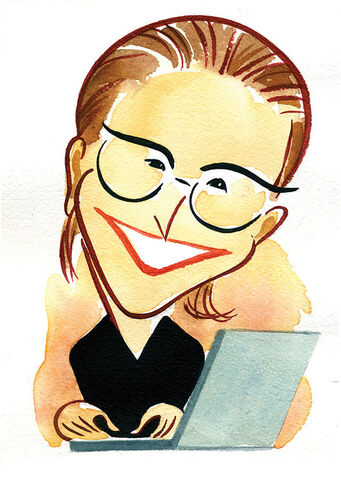“Sexual fluidity” can mean a lot of things, but even if your orientation is carved in stone, you might experience some changes in libido over the course of your lifespan. As you begin to see your 40s on the horizon, it’s possible that your experience of desire will begin to change, and if it does, a number of things might play into that. Let’s consider some of them, shall we?
First, let’s just acknowledge that we have lived through an era that could try any libido. Or maybe supercharge it, depending on how you deal with stress or respond to quarantine, or what your relationships (and sex life) have looked like over the past year or two. So, there’s that.
But when you’re in your 30s, there are common life cycle things that can affect desire, too. It’s not rare for people to couple up, which might include pregnancy (or an IVF journey), kids, or even just a relationship that gets into a rhythm (not gonna say rut, but if you’re in one, you’ve probably noticed). Career can be a huge focus, too, and many folks working at a desk neglect exercise—though they really shouldn’t, because a sedentary lifestyle isn’t great for the libido. Different factors might be in play depending on the situations I just noted: pregnancy hormones, stress, pelvic blood flow, all the relational elements Esther Perel writes about in her book Mating in Captivity. (Communication, exploration, making sure you and your partner have built enough space into your lives together. Any country fans out there? I always liked, “How Can I Miss You When You Won’t Go Away?”)
All that assumes downturns in libido, but of course, science has been telling us for decades that “women’s sexual peak is in their 30s”—and many of us really have noticed that this can be a pretty frisky decade. As a cultural sexologist, I see lots of social and psychological elements in play here. Basically, it can take some of us this long to get over our half-assed sex education and patriarchal suppression and come into our own, sexually speaking.
If you were born with ovaries, though, there’s another important factor that’s coming into your life, if it hasn’t already: perimenopause. This means “around menopause,” and typically describes the time leading up to the cessation of menstrual periods—usually, around your early 50s. Perimenopause involves hormone shifts and bodily changes, but there isn’t one path or experience that all people traversing perimenopause share. Sometimes, people experience it early, even before 40. (So-called “surgical menopause” can happen even younger, as when a person has a complete hysterectomy or other procedure that impacts ovaries and hormones.)
Perimenopause brings with it many potential effects, not all of them sexual. But changes in libido are pretty common. I taught a recent menopause class that required some updated research, and something jumped out at me. Sleep disturbance is no friend to the libido! It creeps up on many folks at this stage in life and may be worsened by another common side effect: hot flashes. You and your sexuality need those 40 winks, and whether it’s hot flashes waking you up, a kid crying, or sugar disruption from late dessert or stress-drinking, prioritizing “sleep hygiene” is a big deal and can pay dividends for your stress level, mental state, overall health, and sex life.
So yeah, perimenopause. Are you there yet? Whether or not you’ve already arrived at that fork in the road (or already made the turn), it’s good to know there’s a reason for some of the changes associated with The Change. You can read all about it in the fabulous Heather Corinna’s new book, What Fresh Hell Is This?: Perimenopause, Menopause, Other Indignities, And You. This is not your mother’s perimenopause book—partly because our mothers’ generations (and their doctors) barely talked about this stuff.
If your libido has hit a bump in the road, take stock. Is it associated with any changes in your life? There are often clues that can send us to the doc (“Did you forget to mention sexual side effects with this birth control or anti-depressant, by any chance?”), a psychiatrist or couple’s therapist, a sex toy store, an AA meeting, or who-knows-where, because we all need different things. Don’t forget to masturbate. If nothing else, it helps keep your blood flowing and informs you of bodily changes. And don’t be afraid to fantasize! Get yourself some good lubricant, sleep naked, hire a babysitter every once in a while. And, most importantly, ask yourself what you need to give your sexual desire room to enhance your experience. Midlife sends us tons of messages—the first thing we need to do is pay attention to them.
Carol Queen’s latest book (written with Shar Rednour) is The Sex & Pleasure Book: Good Vibrations Guide to Great Sex for Everyone.
Carol Illustration: Marcellus Hall
This article originally appeared in the Fall 2021 print edition of BUST Magazine. Subscribe today!


